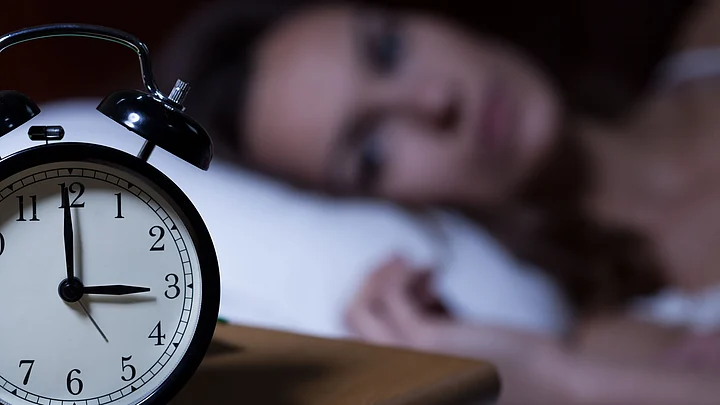Sleepless flocks take a note, researchers have found people who have trouble sleeping may be more prone to stroke, heart attack or other cardiovascular diseases. Do yoga and you can feel sleepy, Indian experts said.
Health experts here have found a solution to the problems raised by the Chinese experts. According to them yoga asanas — Shavasana, Vajrasana and Bhramari Pranayam along with a healthy diet may curb the sleeplessness.
According to Sahil Kohli, Consultant, Neurology at Narayana Superspeciality Hospital in Gurugram, research has shown that more risk of having a stroke or brain attack is there if you have insomnia.
"Reduced sleep leads to inflammation which leads to high blood pressure and glucose intolerance, both of which can increase heart and stroke risk.
"Frequently seen in clinical practice that chronic insomnia and obstructive sleep apnea are responsible for Atrial fibrillation which is also linked to stroke risk," Kohli told IANS.
"It is highly advisable that patients who have reduced sleep and even those who feel fatigued even after sleep at night need evaluation for sleep disorders which can be evaluated by a sleep study," Kohli suggested.
The study, published in the journal Neurology, was conducted on 487,200 people in China with an average age of 51. Participants had no history of stroke or heart disease at the beginning of the study.
The people were then followed for an average of about 10 years. During that time, there were 130,032 cases of stroke, heart attack, and other similar diseases.
People who had all three symptoms of insomnia were 18 per cent more likely to develop stroke, heart attack and similar diseases than people who did not have any symptoms.
According to Atul Prasad, Director in Neurology Department at BLK Super Specialty Hospital in New Delhi, there have been multiple studies linking chronic insomnia to the occurrence of stroke.
"Of late there have been multiple studies postulating an increased risk of stroke in patients with chronic insomnias (via increased cortisol levels and inflammation), and in cases of periodic limb movement syndromes leading on to hypercoagulable state," Prasad told IANS.
He added that the evidence is convincing in greater part to the increased risk of stroke in individuals with sleep disorders and robust evaluation of the same in concordance with a neurologist or pulmonologist is mandated for correct diagnosis and further risk stratification of these patients.
According to the doctors, if you are facing any such problem related to sleep, then follow these tips.
- No matter how busy your routine is, it is most important that you set a strict sleep schedule to ensure you get enough sleep.
- Light instrumental music could help calm the mind and help you fall asleep.
- Avoid using your phone, laptop and watching TV before you go to bed, Dr. Prasad suggests
- A healthy diet is another must.
“Doing these regularly could help with the problems of insomnia and fatigue," he concluded.
(This story was auto-published from a syndicated feed. No part of the story has been edited by FIT.)
(Delhi is in a public health emergency. The air outside is visibly toxic - how has the hazardous air #pollution impacted you? Write down your #PollutionKaSolution and send it to us at FIT@thequint.com. )
(At The Quint, we question everything. Play an active role in shaping our journalism by becoming a member today.)
